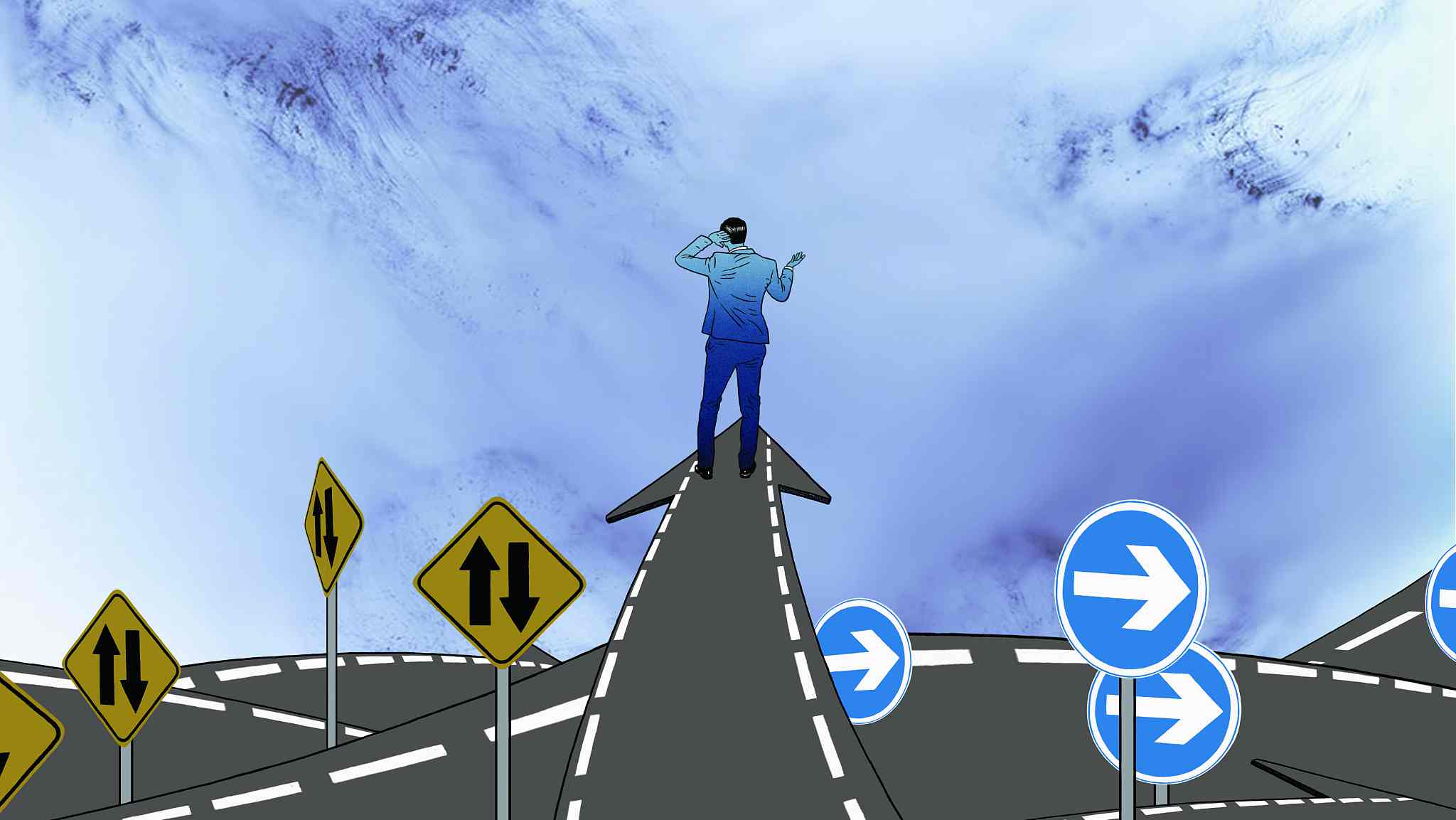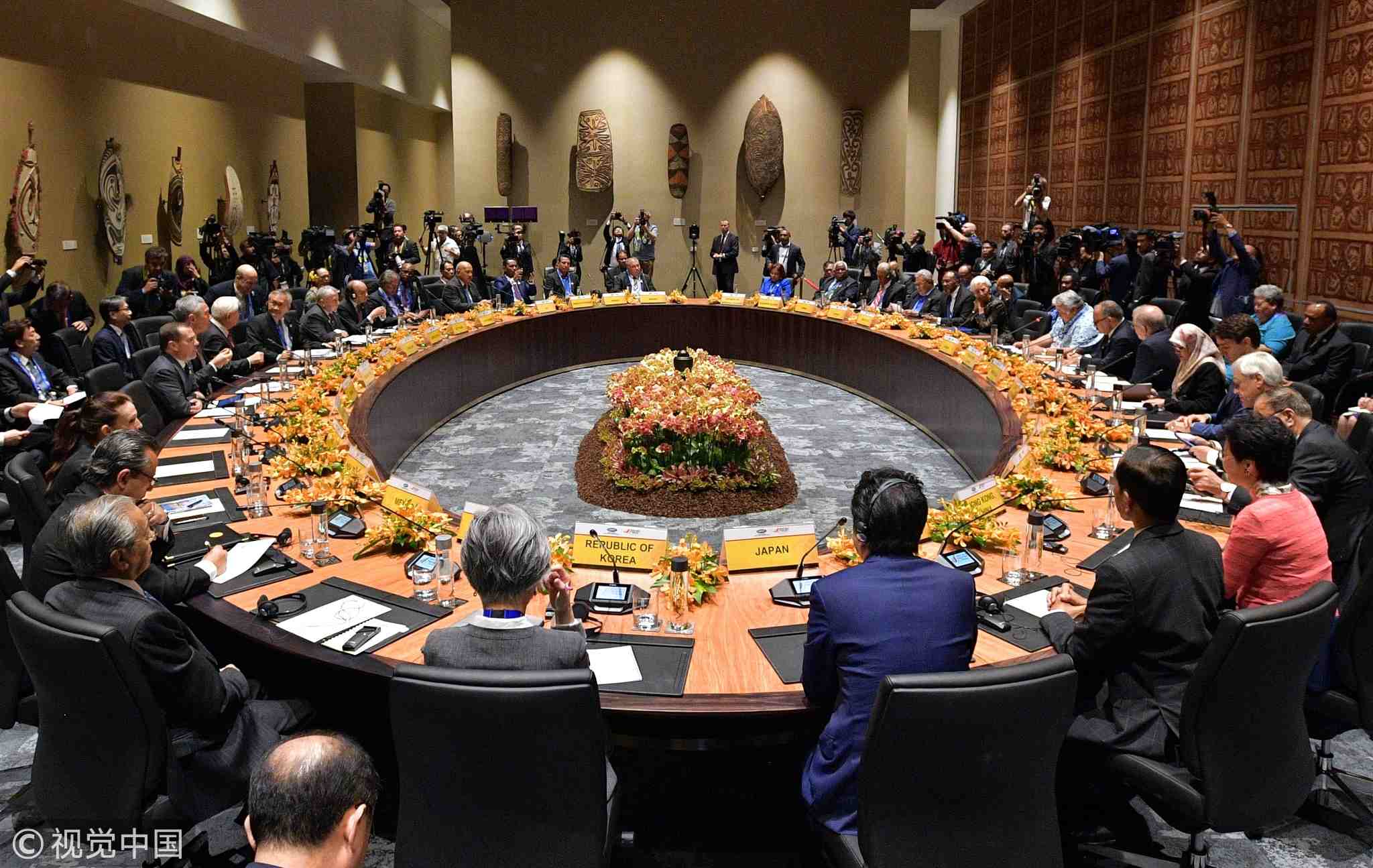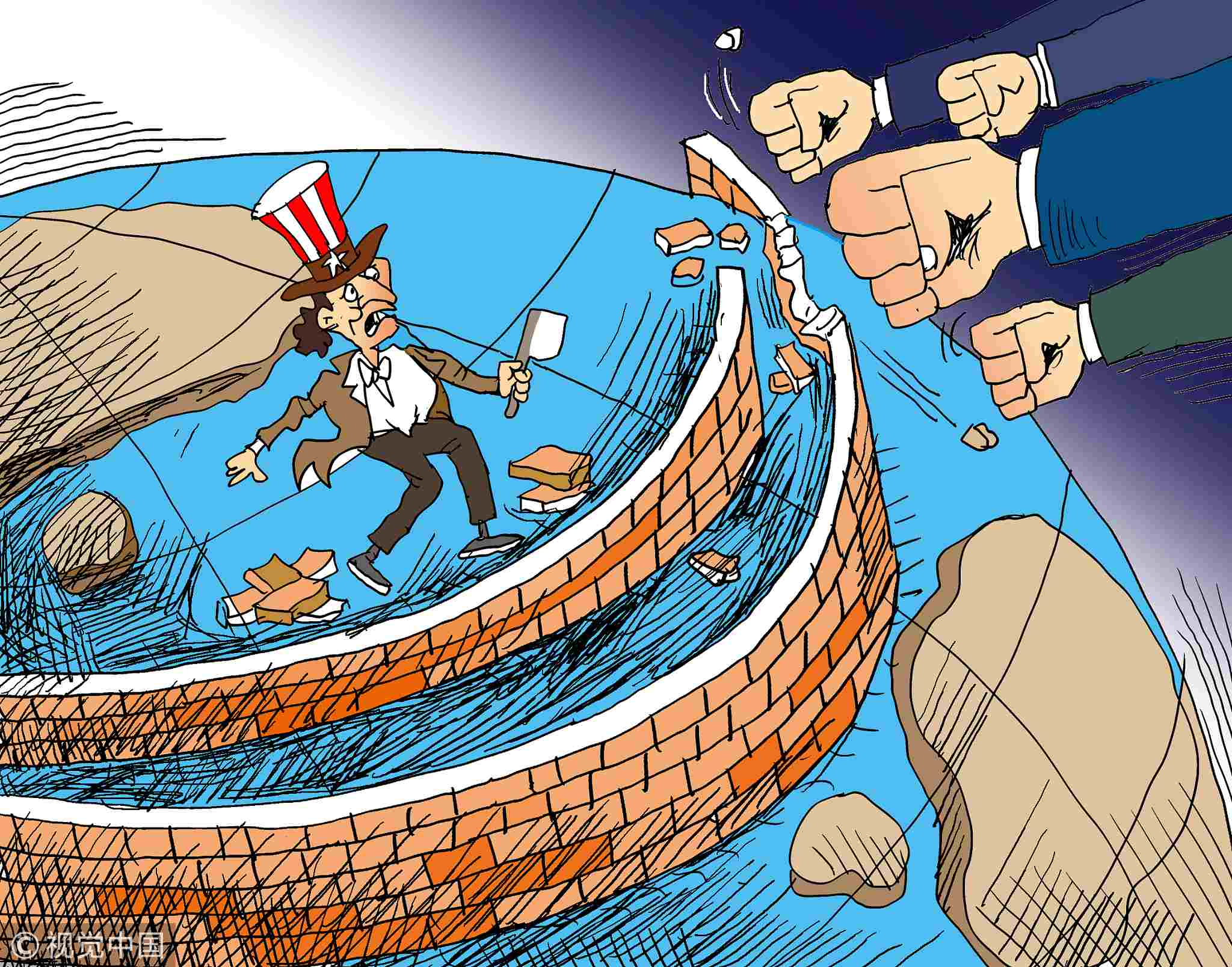
Opinions
15:46, 19-Nov-2018
Opinion: With the world at a crossroads, which direction will the world choose?
Updated
15:35, 22-Nov-2018
Xu Qinduo

Editor's Note: Xu Qinduo, is China Radio International's former chief correspondent in Washington and a senior fellow of the Pangoal Institution. The article reflects the author's opinion, and not necessarily the views of CGTN.
With the rise of protectionism and unilateralism, today's world is full of uncertainties and risks. As leaders from the Asia-Pacific region gathered at Port Moresby, Papua New Guinea over the weekend, such a question seemed to be hanging over the head of the participants at the Asia-Pacific Economic Cooperation (APEC) summit.

APEC economic leaders and leaders of Pacific island states hold a meeting at the 2018 APEC Summit in Port Moresby /VCG Photo
APEC economic leaders and leaders of Pacific island states hold a meeting at the 2018 APEC Summit in Port Moresby /VCG Photo
As Chinese leader Xi Jinping put it during his speech: Mankind has once again reached a crossroads. So which direction should we choose?
“Cooperation or confrontation? Openness or closing one's door? Win-win progress or a zero-sum game?”
Since early this year, the US has imposed extra tariffs on goods from the European Union, Japan, India, Russia, China, Canada, Mexico, etc, as a result of its “America First” principle. In short, the US is launching trade wars against everybody else.
And then, there's retaliation. Trade tensions, which are still unfolding, have clouded the prospect of global economic growth, as investments could be canceled or delayed due to uncertainties.
The heavy reliance on unilateral approaches has posed a serious danger to the global multilateral trading system centered on the World Trade Organization (WTO). A rules-based international order is being disrupted. What's even worse has been Washington's refusal to approve the appointment of new judges at WTO, which threatens to paralyze the organization.
The US is also shirking its international responsibilities, withdrawing from the Paris Accord on fighting climate change, the UN human rights body, and the Iranian nuclear deal, along with many other international agreements.
It's also trying to build walls along its southern borders in order to ward off poor immigrants from the Caribbean and Latin American countries. At the same time, foreign aid has been reduced.
People can't help but wonder which path the world is moving toward as the world's only superpower is choosing “America First”?
Speaking at the just-concluded APEC summit, President Xi Jinping made it crystal clear that protectionism is “a short-sighted approach and it is doomed to failure.”
He said “One who chooses to close his door will only cut himself off from the rest of the world and lose his direction.”
Other world leaders have joined him in saying “no” to protectionism.
Prime Minister of PNG, the host nation, Peter O'Neill, said “smaller economies like Papua New Guinea place considerable reliance on international trade, and especially on international trade rules. We suffer when rules are broken or ignored, and we benefit when rules are followed by all countries, large and small.”
Russian Prime Minister Dmitry Medvedev warned against growing protectionism and argued for clear-cut and transparent rules on trade.
Australian Prime Minister, Scott Morrison, said “Tit-for-tat protectionism and threats of trade wars are in no one's interests economically, and undermine the authority of global and regional trading rules that benefit us and the people.” The solution to trade disputes is, he noted, “more likely to be found around the negotiating table than it is in rebuilding a tariff wall.”
If the world's largest economy is busy rebuilding a tariff wall, the responsibility of maintaining a rules-based global multilateral mechanism falls on the shoulders of the rest of the countries, including China, the world's second largest economy.

VCG photo
VCG photo
Since the beginning of this year, China has adopted a host of new measures to further open up its market. For example, it has significantly lowered tariffs on 1,449 consumer goods and 1,585 industrial goods. It has further cut tariffs for automobiles and auto parts to 13.8 percent and six percent respectively and eliminated tariffs on all imported anti-cancer drugs.
With a new round of tariff cuts coming into effect in November, China's overall tariff rates have been reduced to 7.5 percent, lower than the majority of developing countries and beyond the commitment China made upon its accession to the WTO.
China also launched an International Import Expo to encourage the import of products and services from other countries and regions. Deals worth 57.8 billion US dollars were sealed at the event.
With such steps, China shows that it is committed to trade liberalization and opening up its market. With a population of 1.4 billion and a growing middle class, China is creating tremendous opportunities.
As the world is at crossroads, countries should make their choices wisely. History has shown that, as pointed out by President Xi, “confrontation, whether in the form of a cold war, a hot war or a trade war, will produce no winners.”
(If you want to contribute and have a specific expertise, please contact us at opinions@cgtn.com.)

SITEMAP
Copyright © 2018 CGTN. Beijing ICP prepared NO.16065310-3
Copyright © 2018 CGTN. Beijing ICP prepared NO.16065310-3